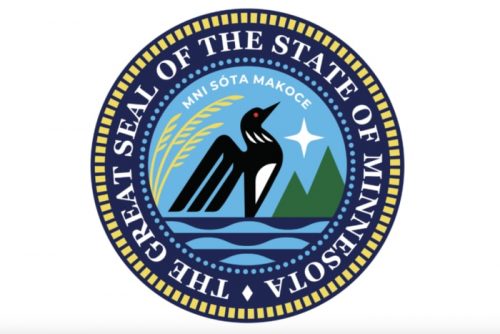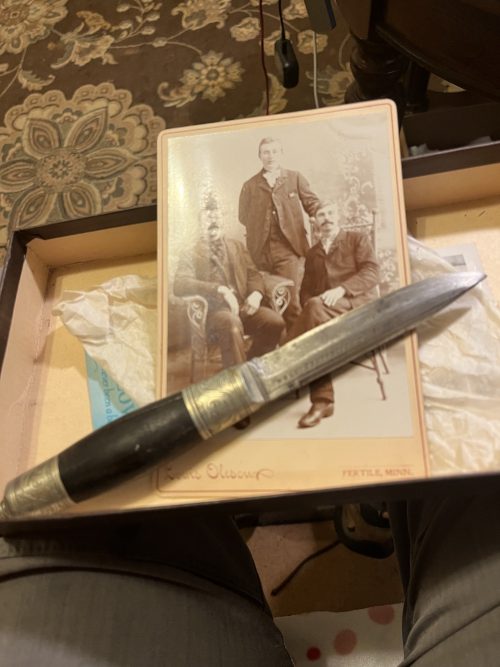This is where American universities are at right now. Enrollment is down, tuition is up, and we’re all wondering where we went wrong…and I think WVU is a great bad example. They hired a bad president.
Then, in December, 2020, the university’s president, Elwood Gordon Gee, announced the start of an “academic transformation.” Gee, who is seventy-nine, has a wry smile and a penchant for bow ties. (He reportedly owns more than two thousand of them.) He served as W.V.U.’s president from 1981 to 1985, then had similarly short stints at the University of Colorado, Brown University, and Vanderbilt University, and two at Ohio State University. His two-year tenure at Brown was controversial—he left abruptly, amid criticism that he had ignored the school’s faculty in some of his decision-making—but he has always been a successful fund-raiser. He returned to W.V.U. in 2014. Gee has long argued that land-grant universities, which were created in 1862 by an act of Congress, are meant to “prioritize their activities based on the needs of the communities they were designed to serve,” as he puts it in the book “Land-Grant Universities for the Future.”
“These are perilous times in higher education,” Gee said, that December. “Across the country, there is a loss of public trust, and the perceived value of higher education has diminished.” Enrollment at W.V.U. had dropped more than ten per cent from eight years before. “We must focus on market-driven majors, create areas of excellence, and be highly relevant to our students and their families,” he said.
The revolving-door leadership is a widespread problem. We’ve had a number of chancellors at my university, most of them forgettable, and I didn’t really know any of them — they were outsiders hired to do fundraising, and little more, and never made any impression (our new chancellor was promoted from the faculty ranks, so we can at least hope for a genuine commitment to this university).
I am not impressed by his bow tie collection. An affectation is not a personality.
What really raises my hackles, though, is that phrase, market-driven
. Fuck you very much, you don’t understand education at all, go buy yourself another goddamned bow tie.
What’s telling, though, is how he chose to adapt the university to the “market”. He’s cutting programs, of course.
This past August, W.V.U. announced plans to cut thirty-two programs and lay off a hundred and sixty-nine faculty members. Among the undergraduate majors set to be purged or restructured were music performance, environmental and community planning, art history, German, Russian, Chinese, French, and Spanish. Masters programs in acting, landscape architecture, energy environments, linguistics, and creative writing would go, too. The plans made national headlines, with much of the coverage focussing on what the changes suggested about the state of the humanities. But it wasn’t only humanities courses that were being jettisoned. Also on the way out were doctoral programs in management, higher education, occupational- and environmental-health sciences, and math. (The university was quick to note that fewer than five hundred students would lose their intended program of study.)
That’s a list that made me groan at every step. Music? Killing music? Foreign languages on the chopping block? No creative writing? This is insane. I’ve noticed that people who talk about market-driven
tend to devalue creativity and diversity, but this is a great disemboweling of the purpose of a university.
And then…MATH? They’re gutting their math program! At a state university!
They’ve back-pedaled a little bit, but not on math.
The administration was receptive to some entreaties—the plan to drop the M.F.A. in creative writing was quickly abandoned, for instance, as was the proposed elimination of majors in Spanish and Chinese. The math faculty prepared an official appeal, arguing that the graduate programs could be preserved but restructured, with an emphasis on math’s connection to other sciences. The university was unmoved. In September, the school’s board of governors voted on the final recommendations: the master’s and Ph.D. programs in math would be discontinued, and sixteen of the department’s forty-eight faculty positions would be eliminated. The undergraduate curriculum would be revised, both to emphasize applied math and also to be more “efficient.”
There’s another danger word: applied
. When some people think of math, after a brief, horrified shudder, they usually think that what we ought to be doing is teaching people how to balance their checkbook or how to do their taxes. That isn’t math. That’s accounting and filling out forms.
Relatively few people study pure mathematics — I’m one of those ignorant people who stopped at calculus. But I can appreciate the beauty of the subject at least, it’s just that I got distracted by other disciplines. Also, I’m definitely not one of those applied
biologists, and I’ve spent a lifetime getting asked “why would anyone study that?” so I can empathize.
If you insist on being pragmatic and only teaching what you think students need to know to do a job, though, consider how impractical it is to reduce math to a service discipline. Very few people will want to work there. The article’s author interviewed a mathematician working at WVU, Ela Özçağlar.
In October, I went to see Ela at her office there. When I arrived, she was speaking with a third-year Ph.D. student from Turkey. On a board above her desk, she and the student had pinned a list of schools that the student was considering as transfer options. Standing in the doorway, he told me that he was hoping to specialize in geometry and algebra. Students at W.V.U. whose programs are being cut are permitted to finish their degrees, but he didn’t see value in staying. “All the pure mathematicians are planning to leave here in two years,” he said. “The math faculty will just be a teaching college.” A few days before, the university had contacted teachers who were being let go. Ela and Olgur, to their surprise, were not on the list. The unlucky group included four teaching faculty and two tenure-track faculty. Ten other faculty members, most of them senior, had volunteered to leave on their own.
Of course they volunteered to leave! They were being told that they couldn’t do the kind of work that stimulates them and makes it worth living in West Virginia. Somebody doesn’t understand the professor mindset. I found myself getting trapped in a rut of service courses, the undergraduate required courses that I could teach in my sleep, and volunteered/insisted that I get to teach some more advanced courses, despite the fact that they were going to require more work. Sure, I could sleepwalk through the basic stuff for a few more years, but I wanted a challenge that would help me learn more. I completely understand how being denied that opportunity to stretch oneself would lead to faculty leaving.
The author talked to another math faculty member, John Goldwasser, who chewed out the college president. Goldwasser seems to have expected President Bow-Tie to actually care about the university.
A few days before we met, Goldwasser sent a letter to Gee, castigating him for bowing to public opinion, and suggesting that, with a more concerted effort, he and his allies might have persuaded the state legislature to fund the university more generously. “If you had failed,” Goldwasser wrote, “you could have resigned in protest. That might have made it possible for your successor to reap the benefits of your efforts. If not, at least you would be remembered as a hero who battled to save the university.” At the heart of Goldwasser’s criticism, he told me, was the belief that a public university should help to create and shape values, not just reflect the things the majority of people already care about. “Did you know that guns will be legal on W.V.U.’s campus starting next July?” he asked me, referring to Senate Bill 10, which will allow West Virginians to carry concealed firearms on the campuses of state colleges and universities. “So, if I were still here, a student could bring a gun to calculus. The legislature cares about that.”
Goldwasser won’t be here: he’s one of the senior faculty who volunteered to go. The mathematician who asked that I not use their name intimated that perhaps Goldwasser’s decision was made altruistically, to save some of the younger faculty members’ jobs. I asked Goldwasser about this, and he smiled slowly, nodding, leaning into the silence between us. “My decision was selfish,” he said, finally. “I wouldn’t want to work in the kind of department that’s going to be left.”
That’s understandable. Not at all understandable to a certain kind of college administrator, apparently.













